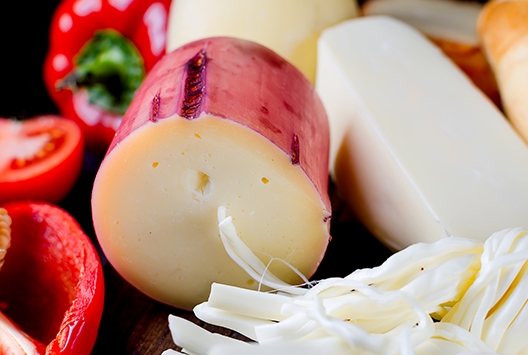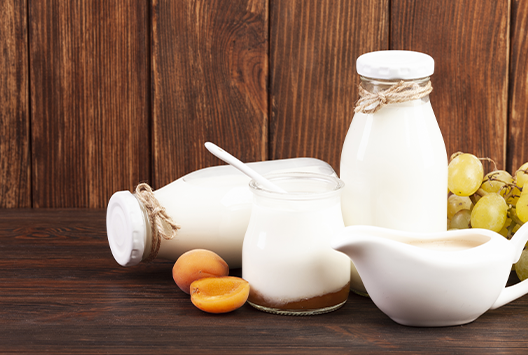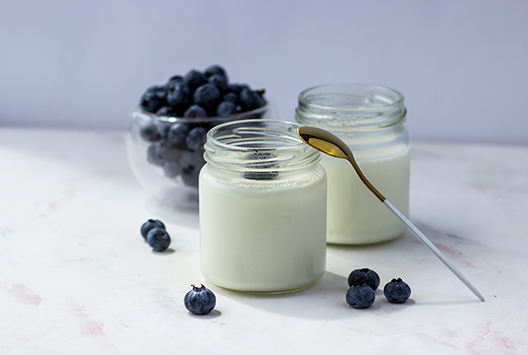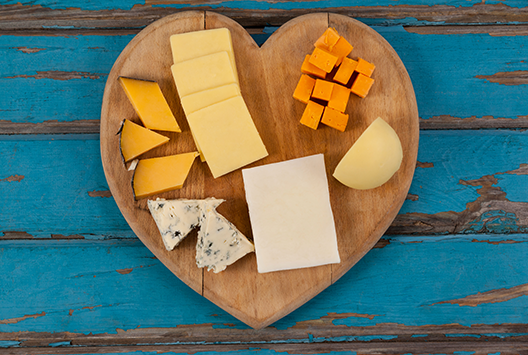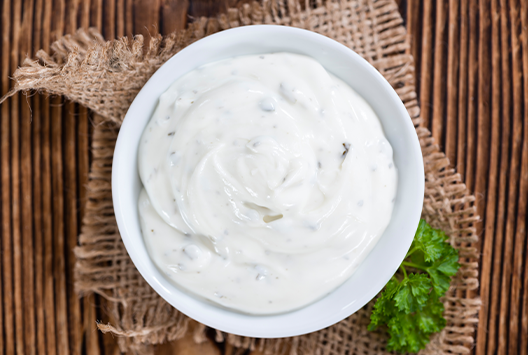
5 Nutritional Benefits of Sour Cream
Similar
Sour cream is a versatile and popular dairy product known for its slightly tangy, creamy texture and flavor. A staple in numerous dishes, including dips, sauces, soups, and salads, sour cream isn't just delicious—it also offers a range of nutritional benefits. Here’s a look at some of them:
1. Good source of healthy fats
Sour cream is a dairy product made by adding lactic acid bacteria to the cream. It is high in fat but is a source of healthy fats. It has been used in recipes for centuries and has a tangy, creamy consistency.
Sour cream is also rich in monounsaturated and polyunsaturated fats, which are considered to be the healthiest types of fats as they help reduce unhealthy cholesterol levels, lower the risk of heart disease, and promote healthy blood sugar levels.
2. Good source of protein
Adding sour cream to your diet can help increase your daily protein intake. A single tablespoon contains almost 1 gram of protein, which is 2% of the daily recommended value.
In addition to its protein content, sour cream is an excellent source of other nutrients. It contains large amounts of calcium and phosphorus, essential for bone health, and vitamins A and E.
3. Can help you absorb more nutrients
Sour cream contains lactic acid bacteria that can help break down proteins and fats in food, making it easier for the body to absorb vitamins and minerals. It can also help improve digestion, further aiding in nutrient absorption.
Not only can sour cream help you absorb more nutrients, but it can also act as a source of those nutrients. Sour cream is high in calcium, phosphorus, and vitamin A, essential for maintaining healthy bones and teeth. If you're looking for a way to get more of these essential nutrients, adding a dollop of sour cream to your meals can be a great way to do so.
4. Can help you lose weight
Sour cream can help you lose weight by providing a healthy source of protein which can reduce cravings and keep your metabolism running at a high level.
It is excellent weight loss food as it is rich in vitamins and minerals, including calcium, potassium, and vitamin A, which are important for health and weight loss.
5. Can help lower your cholesterol
When it comes to heart health, one of the most important nutritional considerations is cholesterol. High cholesterol levels can increase the risk of heart disease and stroke. Fortunately, several foods can help lower cholesterol, and one of them is sour cream.
Sour cream is a good source of monounsaturated and polyunsaturated fats, which are the "good" fats that can help reduce harmful cholesterol levels. The lactic acid bacteria used to make sour cream can also help lower cholesterol levels by increasing the production of HDL (high-density lipoprotein), the "good" cholesterol.
